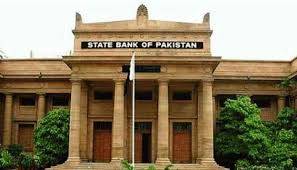_NOBODY_
SENIOR MEMBER

- Joined
- Jan 6, 2016
- Messages
- 3,324
- Reaction score
- 4
- Country
- Location
A cashless society is one where financial transactions are executed digitally, without physical banknotes changing hands. A cashless society makes use of electronic forms of payment such as credit and debit cards, mobile wallets, payment apps, internet banking, cashless point of sales (POS) systems, and other forms of digital payments.
There is no escaping the fact that we are already on our way towards a cashless society. Which brings us to the question ‘Why do we need a cashless society’? Well, the simple answer is there are many benefits to be gained from a cashless society. Primarily, cashless transactions are faster and much more convenient compared to cash transactions. Furthermore, a cashless society eliminates the need to carry cash and count it out every time a transaction occurs.
In a country like Pakistan where money laundering, bribery and tax evasion are huge issues a cashless society can almost entirely eliminate these problems. Cashless transactions hinder the generation of black money and therefore curbs corruption. A cashless society fosters lower crime rates as there is no tangible money for criminals to steal. A cashless society facilitates easier currency exchange while travelling abroad. There is no need to figure out currency exchange rates as technology assists you in more ways than one. By collecting extensive data through digital transactions, consumers can use behavioral insights to manage their spending habits and preferences. The risk of handling, storing, and depositing cash is eliminated. The risk of losing money is lower as credit cards, mobile wallets, and other platforms for digital payment can be blocked if stolen, but lost cash is nearly impossible to recover. Digital payments mostly result in cost savings through improved transaction speed and efficiency. Digital payments can foster better financial inclusion for the general populace by increasing access to a wide range of financial services. Digital payments can empower women, especially in developing countries, by giving them more control over family finances and therefore improving their economic opportunities.
I would the Chinese and Swedish members on this forum to discuss and share their experiences living in a cashless society.
@Bilal Khan (Quwa) @Tipu7 @Imran Khan @Signalian @Aspen @LKJ86 @IblinI @Beast @beijingwalker @SQ8 @ghazi52 @Horus @Arsalan @waz @AgNoStiC MuSliM @LeGenD @PanzerKiel @Joe Shearer @Irfan Baloch @TaimiKhan @Areesh @Moonlight @MastanKhan @jaibi @krash @Kambojaric @Foxtrot Alpha @Deino @BHarwana @PakSword @PAR 5 @Spring Onion @denel @Figaro @samsara @Grandy @JSCh @Feng Leng @bbccdd1470 @Sasquatch @Jungibaaz @PAKISTANFOREVER @TNT @Pan-Islamic-Pakistan @vi-va @A.P. Richelieu
There is no escaping the fact that we are already on our way towards a cashless society. Which brings us to the question ‘Why do we need a cashless society’? Well, the simple answer is there are many benefits to be gained from a cashless society. Primarily, cashless transactions are faster and much more convenient compared to cash transactions. Furthermore, a cashless society eliminates the need to carry cash and count it out every time a transaction occurs.
In a country like Pakistan where money laundering, bribery and tax evasion are huge issues a cashless society can almost entirely eliminate these problems. Cashless transactions hinder the generation of black money and therefore curbs corruption. A cashless society fosters lower crime rates as there is no tangible money for criminals to steal. A cashless society facilitates easier currency exchange while travelling abroad. There is no need to figure out currency exchange rates as technology assists you in more ways than one. By collecting extensive data through digital transactions, consumers can use behavioral insights to manage their spending habits and preferences. The risk of handling, storing, and depositing cash is eliminated. The risk of losing money is lower as credit cards, mobile wallets, and other platforms for digital payment can be blocked if stolen, but lost cash is nearly impossible to recover. Digital payments mostly result in cost savings through improved transaction speed and efficiency. Digital payments can foster better financial inclusion for the general populace by increasing access to a wide range of financial services. Digital payments can empower women, especially in developing countries, by giving them more control over family finances and therefore improving their economic opportunities.
I would the Chinese and Swedish members on this forum to discuss and share their experiences living in a cashless society.
Last edited:





